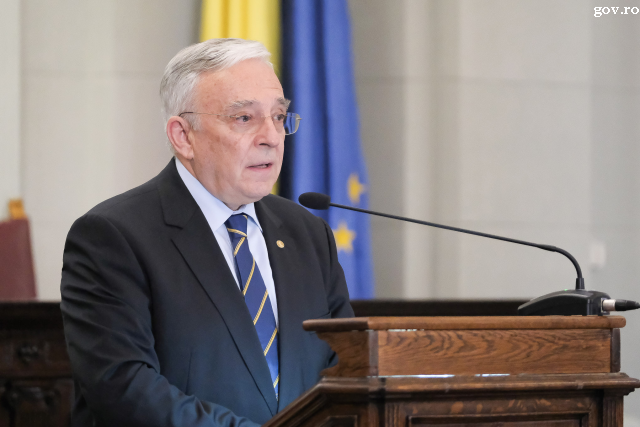The Central Bank’s inflation forecast, revised
The National Bank of Romania has revised downwards to 3% its inflation forecast for this year.

Daniela Budu, 12.02.2020, 14:00
The National Bank of Romania (BNR) has lowered its year-end inflation forecast to 3.0% from 3.1% predicted in November and estimates a 3.2% annual inflation rate at the end of 2021, BNR Governor Mugur Isarescu has announced. In their latest quarterly report, Central Bank experts say a small decrease of the inflation rate is expected by April, when this indicator could go down to 2.8%. Its level will later increase, but it will stay below 3.5% until the end of 2021. Isarescu has also said that factors that cannot be controlled by the Central Bank through monetary policy instruments will have a small influence so that BNR will be able to act in a more effective manner.
Mugur Isarescu: “There is no indication that the price of tobacco and alcoholic beverages and the excise duties will increase significantly in 2020 and 2021. The election year also has its influence. Fuel prices are stable and given the coronavirus epidemic in China the fuel demand continues to be low, which might be of help. Nothing special in the foodstuff department – vegetable, fruit, eggs — where there are controlled increases in prices which we do not believe will be significant.”
Moreover, Mugur Isarescu stressed once again that the twin deficits remain the Central Bank’s main concern, but also argued against the option of sudden exchange rate correction as a solution for reducing the external deficit.
Mugur Isarescu: “Corrections have not been made on time, but we shall see how they are made in the future, in the fiscal-budgetary sector. The Central Bank does not support the idea of sudden corrections, because they could make things worse. The only warning that I give is that it will be very difficult to go out of this pro-cyclical fiscal and budgetary policy that lasted more than 3 or 4 years.”
The Central Bank Governor has said, however, that the current situation is better than in the period before the global financial crisis, given that Romania’s deficits are smaller as to the GDP. Isarescu has said a serious talk on the deficits recorded by Romania is needed, but has pointed out that the decisions regarding the fiscal-budgetary sector are exclusively political.
(Translated by Elena Enache)






























